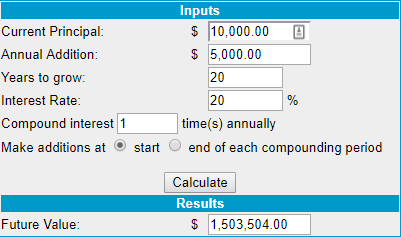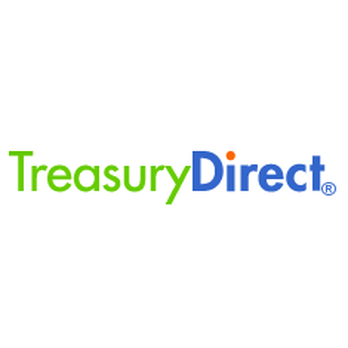
Forex trading is open seven days a week, 24 hours a year, unlike other financial assets such stocks. Trades can be made at any hour of the day or night thanks to this openness. You can open a demo account to try out the system before you make a commitment to a real one.
Forex industry is big on leverage. You borrow money from a broker to increase the likelihood of a trade. This allows you to trade larger amounts of currency pairs than your bank can afford. The forex industry has leverage ratios that can range from a modest 1.01 to the highest end of the scale which is normally capped at 50.1.
The forex industry has a few additional benefits, such as a low entry cost and minimal regulatory oversight. The forex market, unlike most financial markets, is relatively unregulated. This means there aren't any central bank regulators who can intervene and force prices in a specific direction. This means that there is no concern about insider trades.

The forex industry is a worldwide phenomenon. Markets are located in different time zones all over the world. There are trillions in transactions daily, which means the market is constantly changing. This allows traders and investors to take advantage of the smallest price movements. These small movements can result in significant gains.
The forex industry is also unique in that it allows over-the-counter transactions, meaning traders can buy and sell currencies directly, without the need for a physical exchange. The foreign exchange market is one of the largest in the world, with an estimated value of quadrillions of dollars, and operates 24 hours a day, five days a week. People who travel frequently will find forex an attractive option.
Forex trading isn't for everyone. However, there are serious advantages for the skilled trader. In particular, forex is a good choice for first timers as it can be started with a low initial deposit. There are many applications available to help you understand the forex market. These include a demo account, trading calculators and trading software.
There are some drawbacks to the forex industry, such as the possibility of depending on luck to reach your trading goals. There are times when you could lose money on trades. It's important to be prepared for such situations. FX Market is well-known for high-risk high-reward trading.

It's also worth noting that the forex industry is a highly liquid market, with over 4 trillion dollars changing hands every day. It is hard to control this market for very short periods of time because it is so huge.
The forex market is also the most leveraged, which is why its staggering numbers. For example, the forex industry has a minimum lot size of 100,000 units for most dealers. This amount can make the difference in making money or losing it.
FAQ
What is security in the stock exchange?
Security is an asset that produces income for its owner. The most common type of security is shares in companies.
There are many types of securities that a company can issue, such as common stocks, preferred stocks and bonds.
The earnings per shared (EPS) as well dividends paid determine the value of the share.
You own a part of the company when you purchase a share. This gives you a claim on future profits. If the company pays a dividend, you receive money from the company.
Your shares may be sold at anytime.
What are the benefits of stock ownership?
Stocks are more volatile that bonds. The value of shares that are bankrupted will plummet dramatically.
However, if a company grows, then the share price will rise.
Companies usually issue new shares to raise capital. Investors can then purchase more shares of the company.
Companies can borrow money through debt finance. This allows them to get cheap credit that will allow them to grow faster.
When a company has a good product, then people tend to buy it. The stock will become more expensive as there is more demand.
As long as the company continues to produce products that people want, then the stock price should continue to increase.
Why is a stock called security.
Security is an investment instrument that's value depends on another company. It could be issued by a corporation, government, or other entity (e.g. prefer stocks). The issuer can promise to pay dividends or repay creditors any debts owed, and to return capital to investors in the event that the underlying assets lose value.
How can I find a great investment company?
You want one that has competitive fees, good management, and a broad portfolio. Commonly, fees are charged depending on the security that you hold in your account. Some companies have no charges for holding cash. Others charge a flat fee each year, regardless how much you deposit. Others charge a percentage on your total assets.
You should also find out what kind of performance history they have. A company with a poor track record may not be suitable for your needs. You want to avoid companies with low net asset value (NAV) and those with very volatile NAVs.
It is also important to examine their investment philosophy. Investment companies should be prepared to take on more risk in order to earn higher returns. They may not be able meet your expectations if they refuse to take risks.
Statistics
- Even if you find talent for trading stocks, allocating more than 10% of your portfolio to an individual stock can expose your savings to too much volatility. (nerdwallet.com)
- Our focus on Main Street investors reflects the fact that American households own $38 trillion worth of equities, more than 59 percent of the U.S. equity market either directly or indirectly through mutual funds, retirement accounts, and other investments. (sec.gov)
- The S&P 500 has grown about 10.5% per year since its establishment in the 1920s. (investopedia.com)
- Ratchet down that 10% if you don't yet have a healthy emergency fund and 10% to 15% of your income funneled into a retirement savings account. (nerdwallet.com)
External Links
How To
How to open a trading account
It is important to open a brokerage accounts. There are many brokers that provide different services. Some have fees, others do not. Etrade, TD Ameritrade and Schwab are the most popular brokerages. Scottrade, Interactive Brokers, and Fidelity are also very popular.
After opening your account, decide the type you want. One of these options should be chosen:
-
Individual Retirement Accounts (IRAs)
-
Roth Individual Retirement Accounts
-
401(k)s
-
403(b)s
-
SIMPLE IRAs
-
SEP IRAs
-
SIMPLE 401(k).
Each option comes with its own set of benefits. IRA accounts offer tax advantages, but they require more paperwork than the other options. Roth IRAs allow investors deductions from their taxable income. However, they can't be used to withdraw funds. SEP IRAs are similar to SIMPLE IRAs, except they can also be funded with employer matching dollars. SIMPLE IRAs are simple to set-up and very easy to use. They allow employees and employers to contribute pretax dollars, as well as receive matching contributions.
The final step is to decide how much money you wish to invest. This is the initial deposit. Many brokers will offer a variety of deposits depending on what you want to return. Depending on the rate of return you desire, you might be offered $5,000 to $10,000. This range includes a conservative approach and a risky one.
After deciding on the type of account you want, you need to decide how much money you want to be invested. There are minimum investment amounts for each broker. The minimum amounts you must invest vary among brokers. Make sure to check with each broker.
After you've decided the type and amount of money that you want to put into an account, you will need to find a broker. Before selecting a brokerage, you need to consider the following.
-
Fees-Ensure that fees are transparent and reasonable. Many brokers will offer rebates or free trades as a way to hide their fees. However, some brokers charge more for your first trade. Do not fall for any broker who promises extra fees.
-
Customer service - Find customer service representatives who have a good knowledge of their products and are able to quickly answer any questions.
-
Security - Choose a broker that provides security features such as multi-signature technology and two-factor authentication.
-
Mobile apps - Make sure you check if your broker has mobile apps that allow you to access your portfolio from anywhere with your smartphone.
-
Social media presence: Find out if the broker has a social media presence. If they don’t have one, it could be time to move.
-
Technology - Does it use cutting-edge technology Is the trading platform intuitive? Are there any glitches when using the system?
Once you've selected a broker, you must sign up for an account. Some brokers offer free trials. Others charge a small amount to get started. Once you sign up, confirm your email address, telephone number, and password. Next, you will be asked for personal information like your name, birth date, and social security number. You will then need to prove your identity.
Once verified, your new brokerage firm will begin sending you emails. These emails contain important information about you account and it is important that you carefully read them. For instance, you'll learn which assets you can buy and sell, the types of transactions available, and the fees associated. Track any special promotions your broker sends. You might be eligible for contests, referral bonuses, or even free trades.
Next, you will need to open an account online. Opening an online account is usually done through a third-party website like TradeStation or Interactive Brokers. Both websites are great resources for beginners. When you open an account, you will usually need to provide your full address, telephone number, email address, as well as other information. After this information has been submitted, you will be given an activation number. Use this code to log onto your account and complete the process.
You can now start investing once you have opened an account!